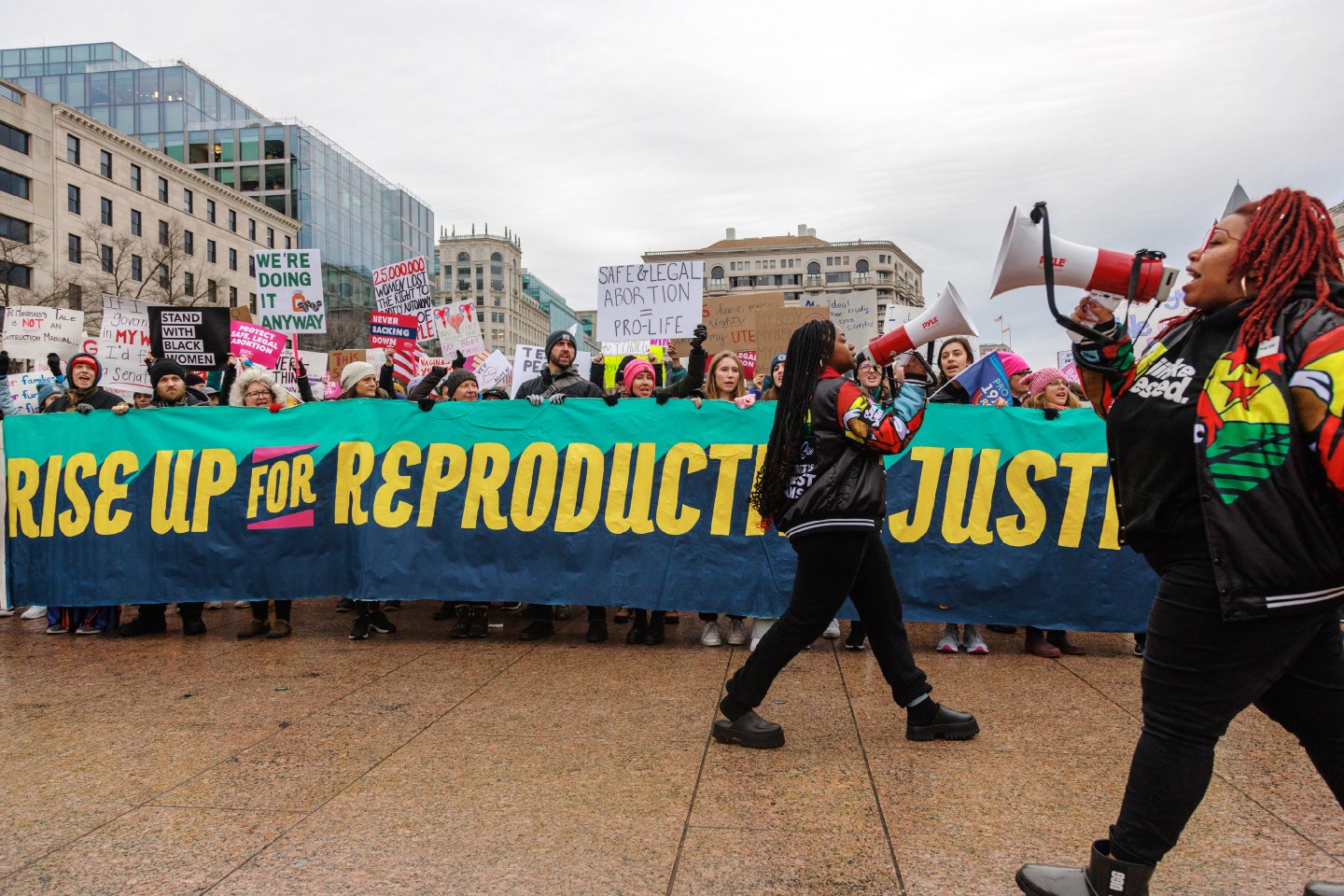Last Friday, Judge Matthew J. Kacsmaryk of the U.S. District of northern Texas issued a preliminary ruling invalidating the Food and Drug Administration’s approval of mifepristone, the drug used for more than half of all abortions in the U.S.
In a competing ruling, a federal district judge in Washington contradicted the order. While the abortion drug remains available, the stage is set for a Supreme Court review.
Until then, the legal firestorm promises to continue, making it challenging for employers to sort out their role in the conversation. But as Jen Stark, the Center for Business and Social Justice codirector, tells Fortune, silence is a choice. “The sidelines are not the middle ground anymore,” she says. She offers several suggestions for employers to consider, emphasizing the importance of communicating how company leaders will address future rulings and the potential impact on workers.
And since we’re on the topic of communication, here’s a still-relevant explainer from my colleague Phil Wahba on effectively talking to employees about the overturning of Roe—without screwing it up.
It’s also important to remember that abortion is a racial justice issue.
“The states that are most likely to ban abortion have much greater proportions of people of color,” Ushma Upadhyay, a public health social scientist at the University of California San Francisco, tells NPR. “We also know that about 60% of people obtaining abortions are people of color.”
While that number varies state by state—in Mississippi, people of color make up 44% of the population but 81% of the people receiving abortions—limited access to abortion has become a costly burden. “Abortion restrictions are racist,” Cathy Torres, an organizing manager with Frontera Fund, a Texas organization that helps pay for abortions, tells PBS. “They directly impact people of color, Black, brown, Indigenous people…people who are trying to make ends meet.”
It’s up to employers to ensure that workers, especially individuals of color, have the information at their fingertips to get the care they need. “Chaos and fear can make abortion care even less accessible,” Stark says.
Ellen McGirt
@ellmcgirt
Ellen.McGirt@fortune.com
This edition of raceAhead was edited by Ruth Umoh.
On Point
Advertisers fret over Elon Musk’s behavior
Advertisers expressed concern over Musk’s appearance at MMA Global, a major marketing conference. One Colgate-Palmolive vice president reportedly wrote in an email thread that she is “both excited for the success of the conference while also mindful of the harmful and often racist rhetoric of Elon Musk.”
Semafor
Tennessee lawmaker is back at work
In a unanimous vote, the Nashville Council reinstated Justin Jones, who was expelled for breaking decorum rules after participating in a chant for gun control on the floor of the House chamber. "Last Thursday, members tried to crucify democracy, but today we have a resurrection," Jones said.
Tennessean
New memoir addresses elderly care
In her book, A Living Remedy, author Nicole Chung digs into profound truths about transracial adoption, but with a particularly poignant twist: The unique grief of caring for aging parents, complicated by their financial vulnerability. “I had sensed that we no longer lived paycheck to paycheck, as my mother had once told me, but emergency to emergency,” she writes. “What had seemed like stability proved to be a flimsy, shallow facsimile of it, a version known to so many American families, dependent on absolutely everything going right.”
NPR
Beef doesn’t focus on race, not exactly
And yet the extraordinary—and hilarious—new Netflix series starring Steven Yeun and Ali Wong explores culture, community, and heritage without making it explicit. Lee Sung Jin, the creator and showrunner, found ways to make the series reflect the lived experiences of Asian Americans in the U.S. “Steven grew up in the Korean church; I did as well,” he says, referring to one emotional scene. “It’s such an almost quintessential part of the Korean American experience.”
Variety
On Background
Michelle Goodwin, chancellor’s professor of law at the University of California, Irvine, explores the racist roots of abortion and contraception, primarily delivered by midwives, most of whom were Black or Indigenous. “Just like slavery, anti-abortion efforts are rooted in white supremacy, the exploitation of Black women, and placing women’s bodies in service to men. Just like slavery, maximizing wealth and consolidating power motivated the anti-abortion enterprise.”
Parting Words
“I have borne 13 children and seen most all sold off to slavery, and when I cried out with my mother’s grief, none but Jesus heard me! And ain’t I a woman?”
—Sojourner Truth in an 1851 speech condemning the Fugitive Slave Act, which allowed for the abduction of free Black children













